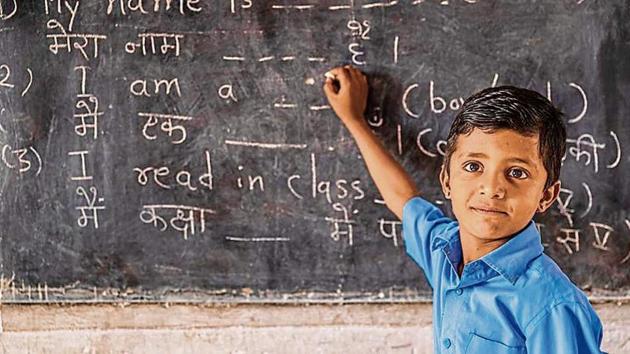Can mother tongue as the medium of instruction transform the learning process across schools
Learning English for Indians has indeed opened up numerous opportunities but what has been the impact of learning English at the cost of forgetting the Indian languages? The NEP’s move will definitely help to bring back the emphasis and importance of our Indian languages
The educational framework that has been untouched for decades needs modifications to gear up and meet the demands of the 21st century. The NEP’s move to introduce teaching and learning in the mother tongue is a particularly bold move. However, it is also a particularly challenging move to implement. The execution will have to be done sensitively and thoughtfully.

Learning English for Indians has indeed opened up numerous opportunities but what has been the impact of learning English at the cost of forgetting the Indian languages? The NEP’s move will definitely help to bring back the emphasis and importance of our Indian languages. And perhaps, also help to de-emphasize the importance of English. But, this debate is a particularly complex one without any easy resolutions. There is no doubt that fluency in English is important in a globalized world. But, should this come at the cost of fluency in the mother tongue?
Rhetorics apart, research has shown that using the mother tongue in the nascent stages of learning has numerous unique benefits for a child. And contrary to common belief, English or any language for that matter can be easily learned by a child even after grade 5 due to the brain’s progressive elasticity and rapid neural formation in children when compared to adults. In layman terms, a child can indeed learn English and become fluent in it starting at grade 5.
Here are some of the benefits of learning in the mother tongue:
Laying a Solid Foundation for Learning
Home is the first classroom for a child. When a child enters a structured learning environment in the form of the school, there is already a tremendous amount of adjustment and adaptation going on. Now, imagine starting school and not able to understand the teacher! There can be no greater stress on a child than this. Having to understand a foreign language while already going through other major changes impedes the learning process. When the medium of instruction is the mother tongue or local language, the child will learn concepts faster, adjust better, and show gains in learning quicker. This extends to parental participation in schooling, as well. In India, due to a lack of fluency in English, parental participation is sometimes limited. A switch to the mother tongue would potentially create a much stronger school-parent partnership which, in turn, would help in laying a rock-solid foundation for a child’s education.
Enhancing Cognitive Development
Being bilingual enhances analytical skills. A bilingual child shows higher mental flexibility, processing power, and spontaneity. They also have greater synaptic activity in the brain due to multiple language processing. This kind of mental agility extends to other areas of learning as well. And, learning through the mother tongue helps in better retrieval of information, too.
Reducing Dropout Rates
The introduction of the mother tongue will encourage a child to go to school with enthusiasm. With the barrier of the foreign language removed, a child in rural India with no access to substitute or extra coaching will learn easily and understand concepts clearly. Furthermore, parents’ intervention due to the removal of a foreign language will help them participate in the child’s learning and dissuade the child from dropping out. This alone would have a significant impact on our economy.
Preserving Cultural Heritage
India is an abode to thousands of languages. We have a proven track record of being multilingual, something that is very unique to us and draws the amazement of the world at large. However, the focus on English is causing steep declines in the usage of Indian languages. The loss of our languages and dialects would be a colossal cultural loss not just to India, but to the world. Furthermore, learning through the mother tongue or local language helps children to connect to their ancestors and culture in a way that many other things don’t. The mother tongue is not just a language but a sense of belonging and valuing it can aid in fostering respect for one’s heritage. Being bilingual will also open up social and cultural opportunities and help one develop new perspectives.
Given the emphasis on English for years, it might seem like a very drastic step to transition to learning through the mother tongue. However, as with all other bold and reformative initiatives, it has its own set of challenges. It would be in our best interest to pause and consider all the benefits and challenges and draw up relevant and meaningful steps to overcome these challenges before jumping headlong into implementation.
(Author Saraswathy Ramamoorthy is Co-founder & CMO Learning Matters. Views expressed are personal)
Get latest news on Education, Bihar Board 12th Result 2024 Live along with Board Exam, Competitive Exam and Exam Result at Hindustan Times. Also get latest Job updates on Employment News









